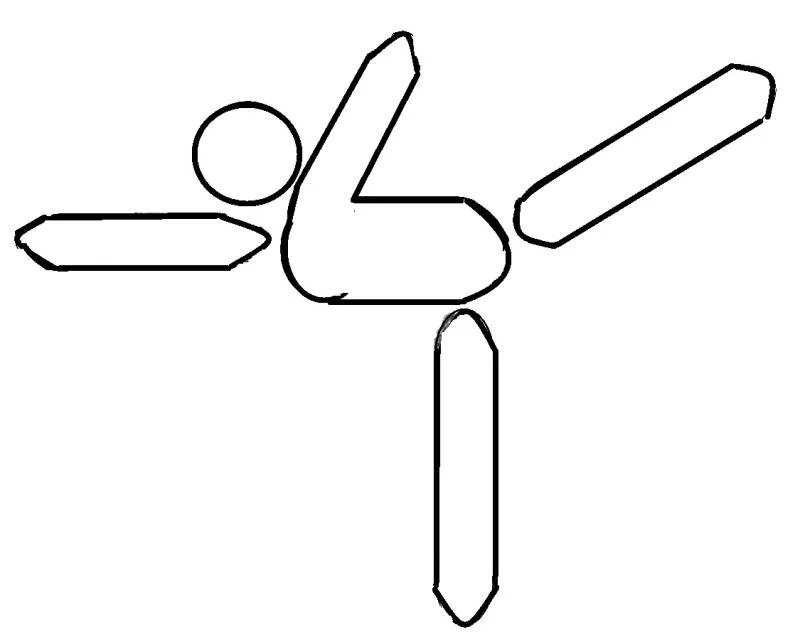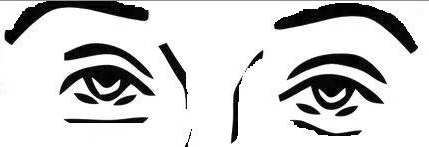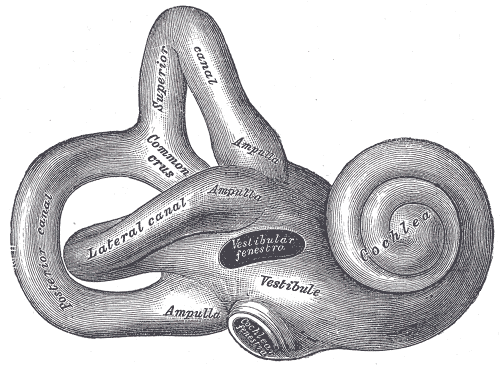Summary balance disorders
This page is a summary of the comprehensive page on balance disorders.
The comprehensive page contains information about:
- Diseases of the balance organ
- which factors influence balance (eyes, balance organ, reflexes, proper muscle function,
proprioception), proper blood pressure, blood flow, heart rate, breathing, and
- the brain areas that enable eye and muscle movements and are important for
spatial orientation.
After sustaining a brain injury, people may experience balance problems, vertigo, and / or unsteadiness. Vertigo is a severe form of dizziness that makes the whole world seem to spin and turn. People with balance problems without a brain injury can also experience these symptoms.
Symptoms may range in severity from mild to disabling.
Three specialties in one?
People with balance problems are referred by their general practitioner to an ENT specialist, a neurologist, or an ophthalmologist. This should actually be a separate specialty, because the problems are so complex. In the United States there is a clinic specialised in balance problems.
Balance
The sense of balance is determined by information from the sense of position (proprioception), vision, and the vestibular system. When something is wrong with (on of) these, the person loses balance and may become lightheaded, dizzy, or feel like the world is spinning and moving.
- Positional sense, or proprioception, provides information about the body's position. This is necessary for sensing what's happening. Thanks to the proprioceptive sensory cells in the body, the brain knows how the body is positioned relative to the space around it.


Proprioceptive Problems
In case something is wrong with proprioception, a person loses balance and may feel dizzy, lightheaded, or feel like the world is moving.
- Vision / the eyes. This is necessary to see what's happening around you. For example, what's above or below, what's moving, etc.

The vestibular system "senses" head movements and can counter-steer the eyes through image stabilization to maintain sharp vision during even the fastest movements. Three image stabilization reflexes are crucial:
1) The reflex between the vestibular system and the eyes for image stabilization: the vestibulo-ocular reflex (VOR).
This reflex is necessary for maintaining sharp vision during even the fastest movements. If this reflex is disrupted, a person will become dizzy, the world will appear to tilt, and they may lose their balance. They may see vibrating images.
2) The reflex between the neck and eyes: the cervico-ocular reflex (COR).
This reflex is necessary for maintaining sharp vision when turning the neck or head. With a neck injury or whiplash, this reflex can be disrupted, causing a person to quickly become dizzy.
3) The reflex between eyes and movement: optokinetic reflex (OKR)
This reflex is necessary to stabilize the image on the retina during movement, where something quickly disappears from view and the eyes return to their starting position.

Vision problems
Everyone knows that you can lose your balance more easily in the dark and find it difficult to orient yourself. Closing your eyes makes walking or standing still more difficult. If something is wrong with your eyes or the visual areas of your brain, balance can be completely lost.
Brain injury may cause many vision problems that can affect your balance. Follow the link for more information.
The vestibular system is located in the inner ear of both the left and right ears.
Both vestibular systems sense gravity, what is up and down, and whether someone is moving or if their surroundings are moving. The vestibular system helps with postural stability, spatial orientation, image stabilization, and maintaining balance.

The equilibrium organ consists of several parts.
Two important parts are:
1) the semicircular canals in the inner ear
2) the otolith
The semicircular canals contain fluid (perilymph and endolymph). These measure the position of the head like a spirit level does.
The otolith senses whether you are moving forward or backward (this is also called linear acceleration).
It plays a role in sensing acceleration, movement, and gravity. This is done through the otoliths.
The otolith contains the saccule and utricle. This video shows how it works.

The three semicircular canals are shown on the left side of the image.
The vestibular organ (the organ of balance), named after "the vestibule," is in the center of the image.
Image from https://commons.wikimedia.org/w/index.php?curid=566864Word

Problems with the balance organ
In case something is wrong with the balance organ, intense dizziness may occur. Acute attacks of vertigo can completely paralyze life. It can be very frightening, along with all the physical symptoms, from nausea and vomiting to drop attacks and fainting.
A blow, a fall, or a collision, for example due to traumatic brain injury, an infection or aging, may dislodge the ear stones by which they end up in the other part of the balance organ: the fluid (perilymph) of the semicircular canals.
Balance is then immediately lost, and the person may become very ill with vomiting.
The eyes may wobble or make rapid jerking movements (nystagmus).
Only when the fluid has stopped spinning does the sensation of intense spinning and the feeling of seasickness subside.
People with a vestibular disorder may be severely limited in their working and social lives. They may quickly and severely become overstimulated, leading to new symptoms.
Read more about the impact of a vestibular disorder on balance.
Diseases of the balance organ

The following conditions are described in detail on the main page for balance disorders.
They are categorized as recurrent (rotating) dizziness, sudden (rotating) dizziness, and balance organ dysfunction.
Sudden spinning vertigo
Labyrinthitis is often mentioned in the same breath as vestibular neuritis, and vice versa. The symptoms are the same, but the difference is the hearing loss associated with labyrinthitis.
Recurrent (spinning) dizziness
- BPPV
- Benign recurrent vertigo / Recurrent vestibulopathy
- Vestibular angle tumor, vestibular schwannoma
- Cervicogenic dizziness (from the neck)
- Cardiovascular dizziness (from the heart)
- Dizziness due to hyperventilation
- MdDS (Mal de Débarquement Syndrome)
- Superior canal dehiscence syndrome (SCDS)
- Vestibular migraine
- Vestibular paroxysms
- Ménière's disease / Meniere's syndrome
Disorder of the balance organ
Factors that influence balance
Proper functioning of everything in the body is crucial for balance. To maintain good equilibrium,
the ears, the two organs of balance, eyes, muscles, blood pressure, heart rate, breathing, and brain function are particularly important.
It is also crucial that these factors work well together.
If even one function or organ isn't functioning properly, the body must compensate with other functions and organs.
Brain
The brain plays a crucial role. It is striking that many different brain areas are involved in balance and equilibrium because they help with spatial orientation and enable (eye) movements.
Extensive information about the brain areas important for balance can be found behind the links:
The following brain areas are important for motor skills. They ensure that a person can adjust posture and maintain balance:
- Basal ganglia
- Thalamus
- Motor cortex
- Frontal lobe
- Parietal lobe
The right hemisphere of the brain is particularly important for spatial orientation, which in turn is important for balance.
The cerebellum and brainstem control
the muscles in the body.
This is necessary for making adjustments to maintain balance, preventing falls, or simply remaining stable. The brain coordinates these movements.
People with injuries in one or more of these brain areas may therefore experience balance problems.
Acute brain injury

When you experience acute dizziness, it could also be a sign of a stroke (CVA). Other acute brain injuries can also cause acute dizziness and imbalance. Dizziness (including vertigo), nausea with or without vomiting may occur. There may be an intolerance to head movements, which can be accompanied by imbalance.
Read about the warning signs that someone may have suffered a cerebral hemorrhage, cerebral infarction, or transient ischemic attack (TIA) via this link.
When the muscles do not work properly due to brain injury

When the brain detects a lack of balance, or when the vestibular system senses it, or the eyes see it, the muscles will try to adjust. If this fails, a person can quickly lose their balance.
Brain injuries can cause many problems with muscle control. Examples include hemiplegia, muscle weakness, paresis, spasms, or parkinsonism.
These can include muscle coordination problems (ataxia) or a movement disorder.
People who are not able to move properly due to a brain injury may experience balance problems.
Other causes
- Fluctuations in blood pressure may cause dizziness and a tendency to faint. This is especially true with impaired autonomic functions: Postural Orthostatic Tachycardia Syndrome (POTS) and Orthostatic Hypotension (OH) (dysautonomia).
- Cardiac arrhythmias
- Circulatory disorders in the vestibular system and/or (cerebral) brain
- Hemorrhage in the vestibular system and/or (cerebral) brain
- Low blood sugar
- Certain medications
- Alcohol use
People with one or more of these factors may therefore experience balance problems.
More information
Our pages on related topics
More information on these subjects can be found on the following websites: